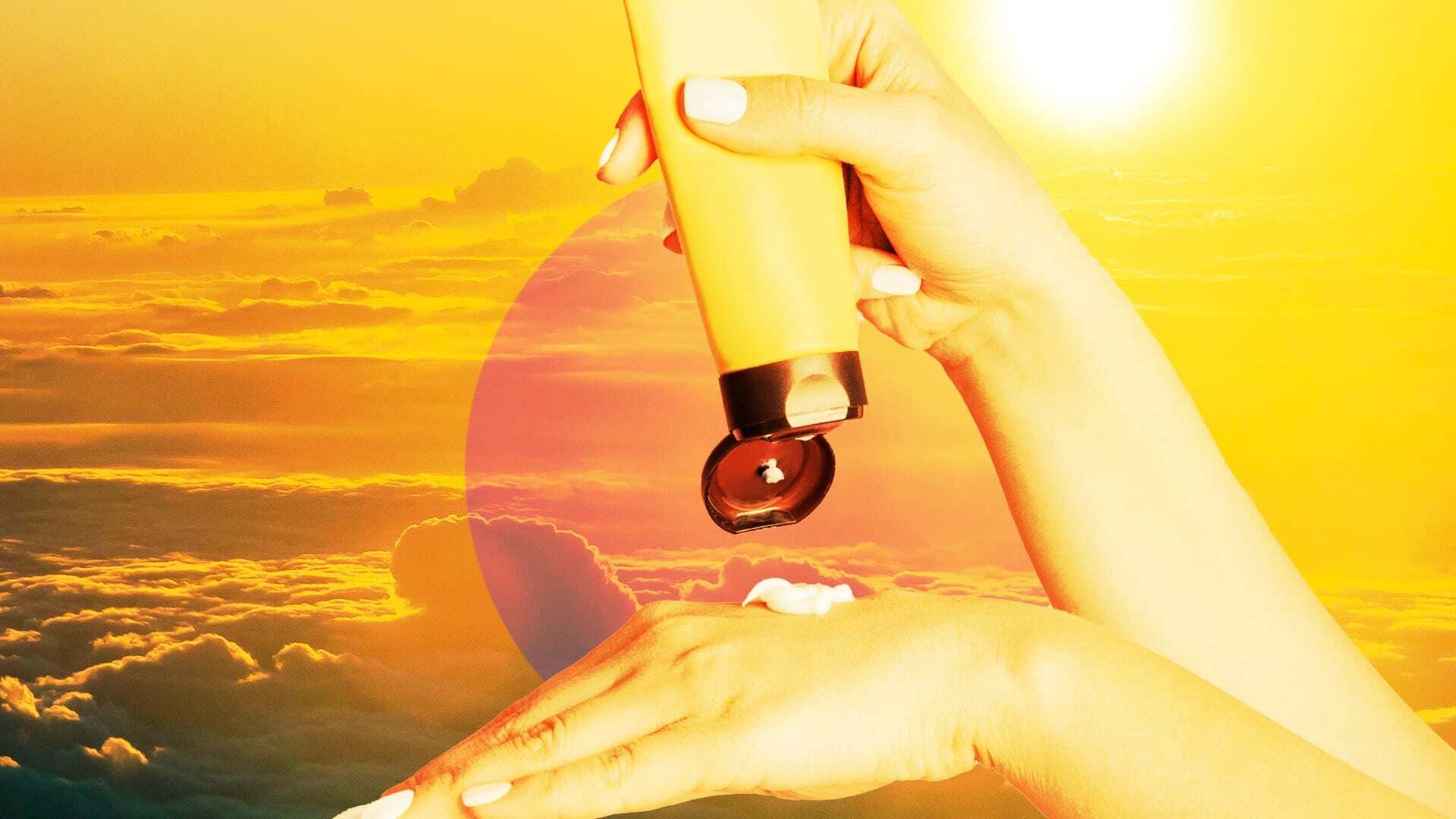- | 8:00 am
A homemade sunscreen is going viral on TikTok. Should you use it?
Influencer Nara Smith’s homemade sunscreen has gone viral. Dermatologists say you’re better off buying some from the store instead.

User Nara Smith has gone viral once again, this time for showing people how to make a homemade sunscreen. But dermatologists say you’re better off—and will be a lot safer—buying some from the store instead.
The video shows Smith’s husband, Lucky Blue Smith, concocting a mixture of coconut oil, shea butter, cocoa butter, beeswax, and jojoba oil. After whisking those together in a bowl over boiling water, he adds zinc oxide powder to the fluid, then sticks it in the fridge for it to solidify.
Smith, a former South African model turned influencer, has made a number of products from scratch, including bubble gum and Oreos. Re-creating junk food is one thing. Protective products are something else entirely.
“Research shows that most homemade sunscreens lack effective sun protection, leaving users vulnerable to sunburn, premature skin aging and skin cancer, the most common cancer in the U.S. American Academy of Dermatology,” Daniel D. Bennett, Secretary-Treasurer at the American Academy of Dermatology (AAD), tells Fast Company. “The efficacy of homemade sunscreens may . . . vary between batches, putting users at risk.”
Smith’s video has been viewed more than 18 million times to date. And she endorses the product in the video, saying “We all burn pretty easily, so we went with something with a little bit more SPF.”
The problem, experts say, is there’s really no way to tell with this recipe how much sun protection users actually receive, which can result in anything from a nasty sunburn to an increased risk of skin cancer. One in five Americans will develop skin cancer in their lifetime, according to the AAD, and nearly 20 Americans die each day from melanoma.
“Making your own sunscreen is not a good idea,” says Cecil Bennett, a doctor at the Newnan Family Medicine in Georgia. “Let’s remember the two main purposes of sunscreen: one, blocking or absorbing UV rays from the sun to prevent sunburn; and two, blocking IV rays to reduce risk of skin cancer. Homemade sunscreen has not been proven to do either.”
Zinc oxide will, in fact, protect users from the sun, but the video does not show proportions of any ingredient, including that key one. And it’s impossible for users to know if they’re slathering on something with an SPF of 30 or 3. (The concoction will do a good job of moisturizing your skin, but that’s not really the point of sunscreen.)
The video is especially dangerous as a recent survey by the Orlando Health Cancer Institute found that young adults are more likely to believe myths about sun protection. About one in seven (14%) adults under 35 think daily sunscreen use is more harmful to the skin than direct sun exposure and nearly a quarter (23%) believe drinking water and staying hydrated prevent a sunburn.
Among the critics of Smith’s recipe was dermatologist Aamna Adel, who responded with a TikTok of her own, chastising both Smith and skincare company Kiehl’s, which commented “we love to see it” on Smith’s video.
“Every sunscreen on the market undergoes rigorous testing, and that’s to make sure that it’s actually protecting you from UV and most importantly, it’s stopping you from burning,” Adel said. “If you’re making a DIY sunscreen at home you literally have no idea how much protection it’s giving you. . . . Homemade bubble tea? Yes. Homemade sunscreen? No.”
Looking to avoid the usual names in sunscreen? Maybe bypass the DIY method and try something unique—like this whipped cream offering, which went viral last year.
“While commercial sunscreen may be more expensive than homemade sunscreen, it’s a small price to pay compared to skin cancer,” says Bennett.







































